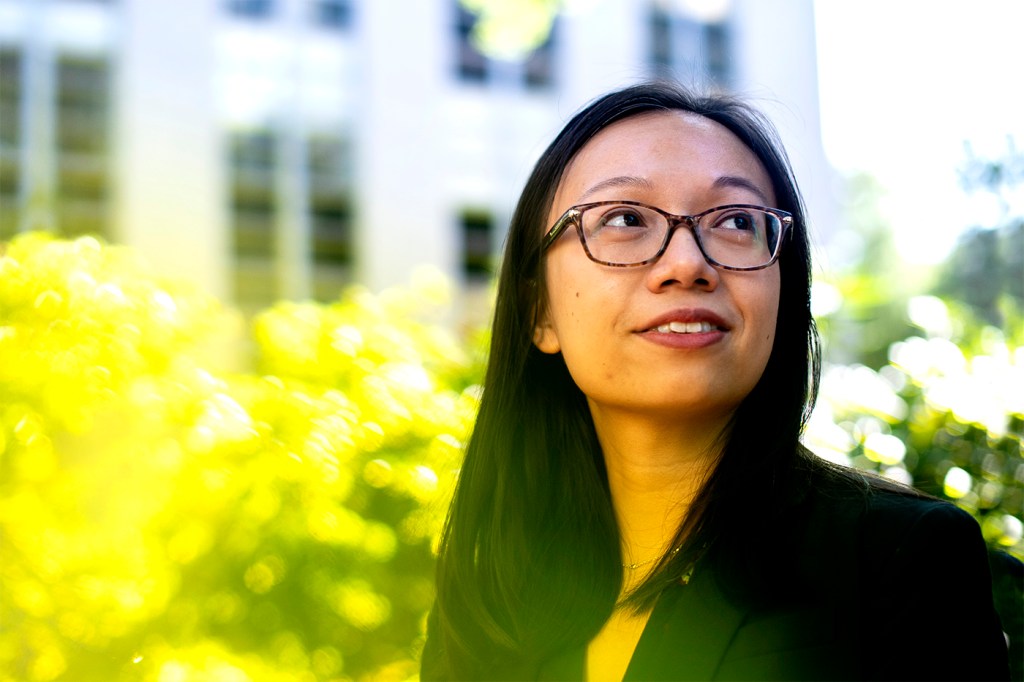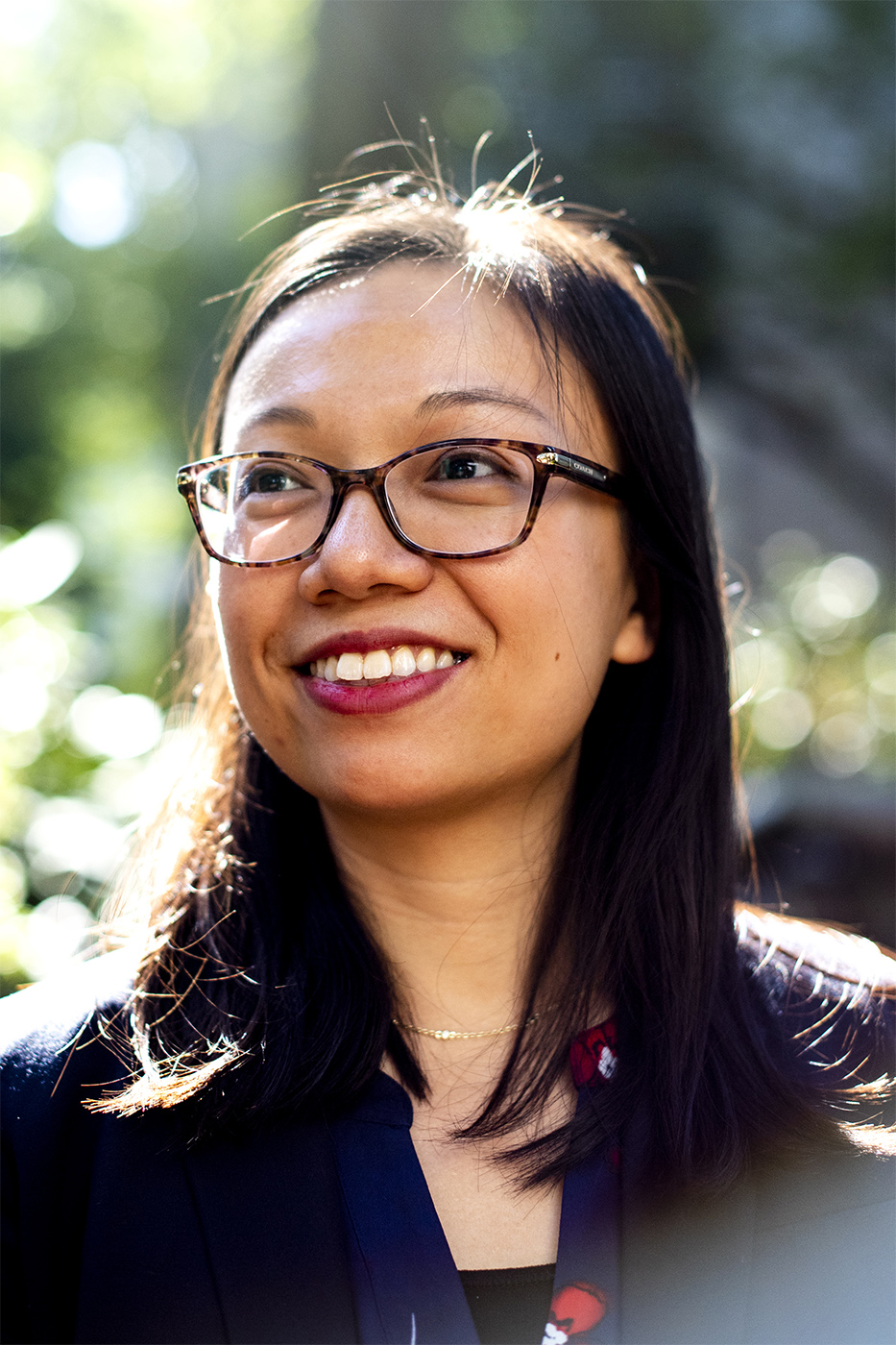Consumers don’t always have the tools to understand what’s in their best financial interest. She wants to help.

Weiling Liu is curious about the economy.
A new assistant professor of finance who joined Northeastern’s faculty this year, Liu studies the factors that cause insurance and banking markets to expand and contract. And, she says, she’s particularly interested in the effect that such fluctuation has upon the people who rely upon those institutions.
Take, for example, the practice of long-term care for senior citizens. As people age, some need assistance with tasks such as getting dressed, cooking, and running errands. But paying for an aid or moving into an assisted living facility can be a serious “financial shock,” Liu says.
“It’s a huge expense,” she says, roughly $100,000 per year, according to estimates by the U.S. Department of Health and Human Services. To help people pay for such services, a special long-term care insurance was created in the 1980s, Liu says. At its peak, more than 100 companies offered this insurance, but that number has shrunk to 30 companies today.

Weiling Liu, a new assistant professor of finance. Photo by Ruby Wallau/Northeastern University
This means that it’s more difficult for people to get the insurance they need. Liu wanted to figure out why the market unraveled.
In work she started during her doctoral studies at Harvard University, Liu found two major factors: First, insurance companies drastically underestimated how expensive it would be to offer long-term care insurance, Liu says, in part because people lived longer and had higher health costs than the companies expected. This meant that companies weren’t making the profits they expected to, and needed to raise prices for consumers.
To do this, insurance companies need approval from public officials in each state whose job it is to regulate the insurance industry. These insurance commissioners are sometimes directly elected, and sometimes appointed by the state governor, who is elected. That makes these positions highly political, Liu says.
Liu has also found that insurance commissioners tend to be hesitant to approve rate hikes for insurance companies for fear of retribution at the voting booth.
This, she says, creates something of a quagmire for companies offering long-term care insurance—they’re losing money on these policies and often can’t raise their rates to a point that will make the policies profitable. As a result, many companies have simply stopped offering long-term care insurance, making it harder for people to get the assistance they need, Liu says.
While the mechanics of how and why the market has so drastically shrunk interest her, Liu says she’s motivated by the potential to help consumers make the best decisions to protect their financial stability.
“In everything I do, I think back to how this will affect the consumer,” she says. “How can we help individuals?”
Liu muses that growing up in an immigrant family might have something to do with her protective instinct. Her parents moved to the U.S. from China when she was young.
The first time her dad wanted to invest in stocks, he bought a book by billionaire investor Warren Buffett. But her dad didn’t have Buffett’s depth of financial knowledge nor his financial cushion to absorb risk, and he ended up investing in “a lot of risky stocks” that didn’t pan out, Liu says.
“He lost a lot of money, so to me the most important thing has been about how we can protect the consumer and make sure they’re financially stable,” Liu says.
After she graduated from the University of Chicago in 2012, Liu worked at the Federal Reserve Bank of New York on a team that was helping to study the effects of the financial crash of 2008.
“I was learning constantly, and working with people who were invested in keeping the economy stable,” she says. “I really felt like it was a noble calling.”
Liu considered studying statistics in graduate school, but reconsidered when she realized that someone she knew in the program had been so sleep-deprived that she never saw his eyes fully open until graduation. Instead, she studied business economics, earning her doctorate at Harvard University.
Now, at Northeastern, Liu plans to continue to study the relationships between consumers and large financial institutions.
“If my research can help consumers who maybe aren’t as financially literate, that’s the whole goal,” she says.
For media inquiries, please contact media@northeastern.edu.





